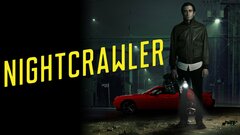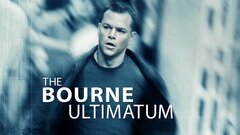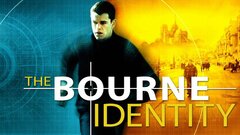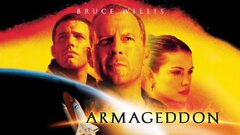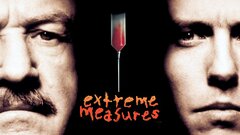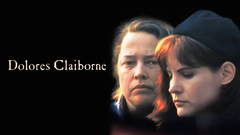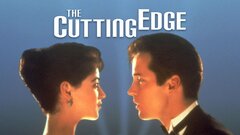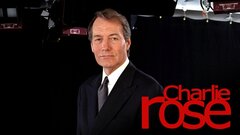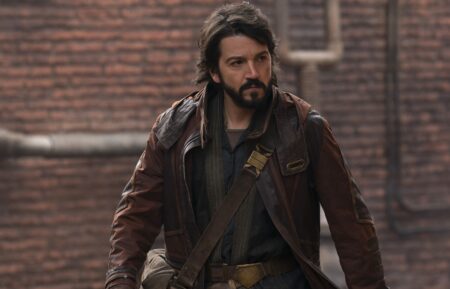After spending much of his early career writing scripts for films that were never produced, writer-director Tony Gilroy emerged as the go-to screenwriter for intelligent and richly drawn thrillers that often featured isolated heroes nearing the end of their limitations. Though he broke through with the ice-skating romantic comedy, "The Cutting Edge" (1992), Gilroy penned well-known thrillers like "Dolores Claiborne" (1995), "Extreme Measures" (1996) and "The Devil's Advocate" (1997), which helped pave the way for a lucrative side career as a noted script doctor.
But it was his adaptation of Robert Ludlum's dense spy thriller, "The Bourne Identity" (2002) that propelled him into the upper echelon of Hollywood scribes. The massive critical and financial success of that film, as well as the sequels "The Bourne Supremacy" (2004) and "The Bourne Ultimatum" (2007), redefined the spy thriller genre while making Gilroy a highly-sought writer. He parlayed the success of that franchise into a new career as a director, starting with the excellent legal thriller "Michael Clayton" (2007), which earned a large helping of critical adulation while drawing upon the stark, character driven films of the 1970s.
He moved on to direct the engaging romantic thriller "Duplicity" (2009) while penning "State of Play" (2009) and the remake of "Red Dawn" (2010), which only further added to Gilroy's already considerable stature within Hollywood.
Born on Sept. 11, 1956 in New York, NY, Gilroy was raised upstate by his father, Frank D. Gilroy, a playwright who won a Tony Award and Pulitzer Prize for "The Subject Was Roses" (1965), while also scripting several films, and his mother, Ruth, a sculptor and writer. Growing up in blue-collar Washingtonville offered Gilroy an environment as far away from Hollywood as possible - just as his father wanted. After graduating Washingtonville High School, he enrolled at Boston University in 1973, only to drop out two years later in order to play guitar in several local bands.
He took a stab at songwriting, but found himself selling copier ink on the gray market instead. Following a move back to New York in the late-1970s, he began writing fiction, starting with short stories that Gilroy had difficulty getting published. To make ends meet as a struggling writer, Gilroy spent five years working behind a bar at several restaurants around Manhattan.
Tired of the seemingly dead-end literary world, Gilroy turned to the one place he thought he could make real money - Hollywood. He soon found the success and financial windfall he had hoped for after selling several screenplays in the 1980s that ultimately went unproduced; the first being a script intended for action star Chuck Norris called "Cupid O'Malley - As Dead as They Get." Once the next decade rolled around, Gilroy finally saw the fruits of his labor when "The Cutting Edge" (1992) was released.
A 1930s screwball comedy by way of Shakespeare's "The Taming of the Shrew," the teen-oriented romantic comedy starred Moira Kelly as a spoiled world-class ice skater who is forced to partner with an arrogant hockey player (D.B. Sweeney). The film proved immensely popular with younger female audiences and launched Gilroy's screenwriting career in earnest. Over the next few years, he developed a reputation as a practitioner of clever and literate thrillers.
In his first of several films for director Taylor Hackford, he adapted Stephen King's "Dolores Claiborne" (1995), starring Kathy Bates as a woman living with accusations of having killed her abusive husband 20 years ago, only to find herself the prime suspect in the fresh murder of her hard-driving boss.
Gilroy moved on to write "Extreme Measures" (1996), a medical thriller from director Michael Apted about a British doctor (Hugh Grant) who unearths an experimental surgery performed by a well-known surgeon (Gene Hackman) that has been fatal to the patients. Teaming up with Hackford once again, he wrote the supernatural-themed thriller, "The Devil's Advocate" (1997), which pitted Keanu Reeves' fast-rising Manhattan lawyer against the head of his law firm, Satan himself (Al Pacino).
It was during the making of this film that Gilroy seized upon the notion that the darkest deeds happened behind the closed doors of major firms - an idea that would later form the nucleus of "Michael Clayton." Meanwhile, Gilroy was one of four screenwriters who tackled the disaster epic "Armageddon" (1998), which focused on the world's best oil driller (Bruce Willis) as he assembles a ragtag crew who are then shot into space to detonate a nuclear weapon on an asteroid heading for Earth.
He reunited with Hackford again to write the underrated hostage thriller "Proof of Life" (2000), starring Russell Crowe and Meg Ryan, while penning the action comedy, "Bait" (2000), for Antoine Fuqua.
Shortly thereafter, Gilroy met with director Doug Liman to write the script for "The Bourne Identity" (2002), a high-energy spy film based on the dense novel by Robert Ludlum about an amnesiac über-spy, Jason Bourne (Matt Damon), struggling to regain his mind and his memory while being hunted down by agency assassins. Liman had passed on one of Gilroy's scripts prior to the meeting, which the writer later admitted was the primary reason for his attending the sit-down.
Having landed the job, he went on to produce a tautly-paced and suspenseful thriller populated by richly drawn characters. The result was a huge international box office hit that spawned sequels that Gilroy also wrote: "The Bourne Supremacy" (2004) and "The Bourne Ultimatum" (2007), which were both directed by Paul Greengrass. All three films were major box office smashes, while each one seemed to only increase in quality and critical adulation. Though the films failed to net him any major award nominations, they did manage to elevate his career to staggering new heights.
Sitting down in the director's chair for the first time, Gilroy made his debut as writer and director with "Michael Clayton" (2007). The tense, well-acted legal thriller starred a rather world-weary George Clooney as a fixer for a prestigious Manhattan law firm who finds himself at the end of his rope as he tries to clean up a mess left behind by a senior partner (Tom Wilkinson).
The modestly budgeted thriller earned nearly unanimous positive reviews from critics, though box office returns both at home and abroad left something to be desired. Regardless, "Michael Clayton" was near the top of many critics' top ten lists for the year, while earning a number of award nominations, including nods at the Academy Awards for Best Picture and Best Original Screenplay.
He moved on to direct his next film, "Duplicity" (2009), a smart and sexy romantic thriller which starred Clive Owen and Julia Roberts as two covert agents plotting against each other while battling their mutual attraction. After writing the script for the underrated political thriller, "State of Play" (2009), which focused on a fast-rising U.S. congressman (Ben Affleck) involved in murder and cover-up, Gilroy was slated to write and direct the fourth "Bourne" movie, "The Bourne Legacy" (2012).








